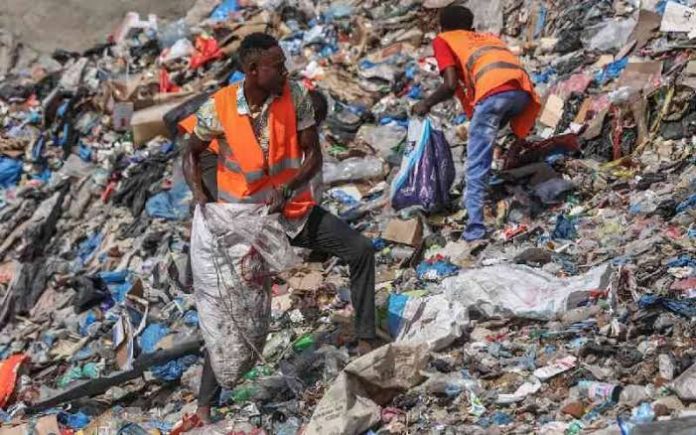Facebook Twitter (X) Instagram Somali Magazine - People's Magazine
In October 2024, Somalia officially began enforcing a nationwide ban on single-use plastic bags, following in the footsteps of neighboring countries like Kenya and Tanzania. However, the ambitious effort to combat plastic pollution faces significant challenges as the ban struggles to take root in Mogadishu’s markets and beyond.
Plastic Still Ubiquitous in Markets
Despite the ban, the vibrant streets and bustling markets of Mogadishu remain filled with plastic bags. According to local grocers and traders, the affordability of plastic compared to eco-friendly alternatives remains a significant hurdle.
“We know the negative impact of these plastic bags, but the reality is that alternatives are too expensive for us and our customers,” explained Abdikarim Hassan, a vendor in Mogadishu’s central market. Paper bags, which are more sustainable, cost four times as much as their plastic counterparts.
For Shamso Muqtar, a vegetable seller and mother of five, the lack of affordable alternatives highlights a key shortcoming of the ban. “The government should have evaluated the situation and introduced cheaper options before forcing this law on us,” she said.
Challenges in Implementation
The Ministry of Environment and Climate Change acknowledged the ongoing prevalence of plastic bags in the markets. Officials attribute this to pre-ban stockpiling by traders, who are permitted to sell their existing supplies.
“There was no immediate confiscation of existing stock, and this has delayed the full implementation of the law,” said Garad Abdullahi Ali, an official with the ministry.
While higher-end boutiques and supermarkets catering to the city’s middle-class have started offering eco-friendly alternatives, their adoption remains limited to wealthier customers.
Public Support Grows Despite Resistance
For some, the law represents a critical step toward a more sustainable future. Volunteers like Abdisatar Arabow Ibrahim are urging citizens to embrace the ban and contribute to reducing the environmental damage caused by plastic waste.
“Our beaches and streets are overrun with plastic, harming both humans and wildlife,” said Ibrahim. “This law is long overdue, and compliance is essential to safeguard future generations.”
Many residents, such as supermarket customer Abdirahman Omar Mohamed, support the ban, noting the devastating effects of plastic pollution. “It’s a danger to both human and animal life, and it’s about time we saw some action,” he remarked.
Plastic Waste Crisis in Numbers
Globally, the plastic waste crisis is accelerating. The Organisation for Economic Co-operation and Development (OECD) reports that plastic production has doubled since 2000, with an estimated 460 million tonnes produced annually by 2019. Projections indicate this figure could triple by 2060.
In Somalia, the impact of plastic pollution is visible on Mogadishu’s once-pristine beaches, now plagued by heaps of plastic waste. The United Nations Environment Programme estimates that the equivalent of 2,000 garbage trucks of plastic enters waterways daily, contributing to the crisis.
Path Forward
Somalia’s plastic ban is a step in the right direction, but its success hinges on addressing economic barriers and ensuring widespread access to affordable alternatives. Environmental advocates argue for government incentives to support the production and distribution of sustainable materials, alongside public awareness campaigns to encourage compliance.
As Somalia works to align its ambitious environmental goals with the realities of its economy, the country’s fight against plastic pollution remains a pressing challenge. Only through coordinated efforts between the government, businesses, and citizens can Somalia hope to realize the promise of a plastic-free future.

